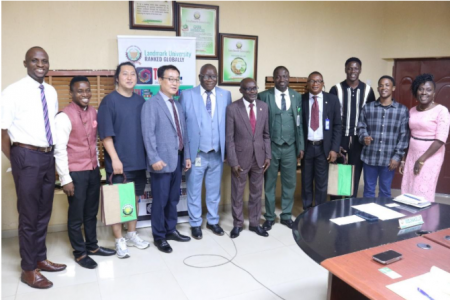
Story of the week
As Landmark University advances the pursuit of its agrarian revolution through quality teaching and research, the place of communications in the drive took centre stage during the 11th Founder’s Day celebration of the University on Monday, March 21, 2022. The event, which was held in collaboration with the Mass Communication programme, gave Professor Emmanuel Ajisegiri of the Department of Mechatronics, Landmark University, the platform to identify the position occupied by information in the 21st century to achieve an unprecedented increase in agricultural production.
While noting that communication has a significant role to play in the complexities of agricultural processes and advocating the digitization of communication to advance the agrarian revolution, Professor Ajisegiri said that we are in an era when information has become an industry that has also been advanced through technology.
“At present, we have an average of 7.8 billion people on this earth and we need to feed them. In feeding them, we must not compromise future productivity, that is, we must ensure sustainability. The current system of food production that we have now consumes about 75% freshwater. Food production processes contribute 30% to greenhouse gas emission which is also a major contributor to losses in biodiversity,” he revealed.
According to him, the realisation of the agricultural revolution target of surpassing the food need of the estimated 8 billion population of the world by 2030 through a massive increase in production, there must be an intentional increase in hectarage through mechanization, improved seeds through breeding and genetic engineering, pest control, weed control, disease control, irrigation, harvesting and storage among others. “Therefore, there is no other way by which we can optimise than digitizing farming. We have to link ICT in forms of training, technological advances, funds and other input, sales and have a complete network so that we can survive,” he noted.
His presentation was followed with a parley which featured members of faculty from the four colleges namely Dr Kolawole [College of Agricultural Sciences]; Dr Marion Adebiyi [College of Pure and Applied Sciences]; Dr Adekunle Adeleke [College of Engineering]; Dr Bamidele Rasak [College of Business and Social Sciences]; and Dr Ejem Agwu [College of Business and Social Sciences] to further expand the scope of the discourse.
Speaking on ‘Communication as a potent Sociological tool for Agricultural Development’, Dr Rasak noted that until the nation takes the culture of agriculture as a business, food security and its sustainability is not in view, noting that agriculture would remain a subsistence endeavour.
According to Dr Kolawole, the role of the extension service providers is enhanced when technological innovations are designed putting the end-users into consideration for acceptance and use while speaking to the topic ‘Agricultural Innovations, Acceptance and Use: The Role of Extension Service Providers as Intermediaries’.
Also in their submission, it was crystal clear that 21st century technology has been in its advanced stage with unlimited applications in different fields of endeavour, agriculture inclusive. The presentations of Drs Adebiyi and Adeleke on ‘Current and Future Development in Artificial Intelligence for Agricultural Revolution’ and ‘The Role of Mechanization in 21st Century Agricultural Revolution’ further established the unnegotiable relevance of technology in the 21st century agricultural practice towards the availability, accessibility, affordability, and sustainability of the produce.
Dr Ejem Agwu advocated the quality training of extension providers for effective engagement of communication tools as a means to driving the frontiers of the agrarian revolution in the nation while addressing the topic ‘Strategies to Effectively Communicate 21st Century Agricultural Innovations to Rural Farmers’.
The Management ably led by the Acting Vice-Chancellor, Professor Aremu later proceeded to dedicate the newly built laboratories [Public Relations/Advertising and News Room] and studios [Radio/TV Broadcast Studio and Photo Studio] for the Mass Communication Programme. During the dedication, Professor Aremu led the array of unending appreciation to God for His provision, the proprietor base led by the Chancellor, Dr David Oyedepo and the Pro-Chancellor, Pastor Mrs Faith Oyedepo for the continued commitment and support for excellence, the Board of Regents, the management for their efforts and the sundry support from faculty and staff towards ensuring the day was a success. She noted that the facilities were built to further strengthen the programme in terms of quality teaching and research thereby validating the commitment of the University to its vision of becoming a world-class institution.
According to the Registrar, Miss Fola Oyinloye, nurturing the programme to its current stage validated management’s consistency in their commitment to responsibility, saying that it was one of the sacrifices made by the various stakeholders in the institution from the beginning. She, therefore, saluted the perseverance and resilience of the faculty, staff and students of Mass Communication over the years.
The Chaplain of the University, Pastor Omotunbi Oluwatimilehin while pronouncing blessings upon the facilities charged that it required thanksgiving and joy to maximise God’s blessings. He said by so doing, the facilities are being handed back to God as the owner for divine preservation and increase in its service to humanity through increased subscription of students.
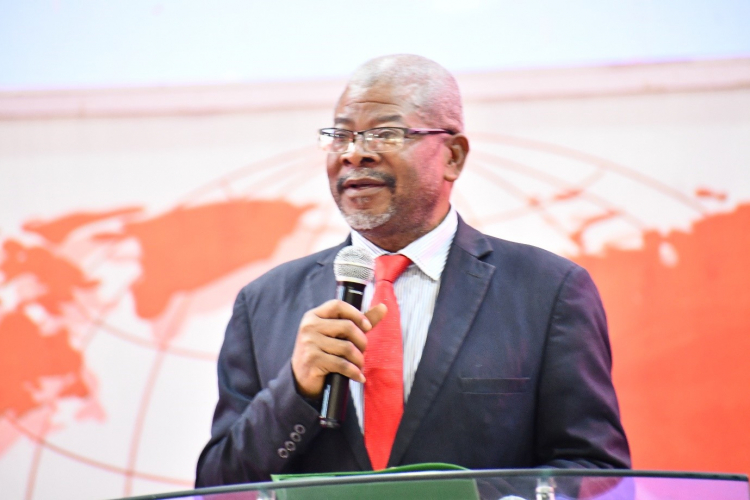
Professor Emmanuel Ajisegiri making his presentation during the parley commemorating the 11th Founder�s Day
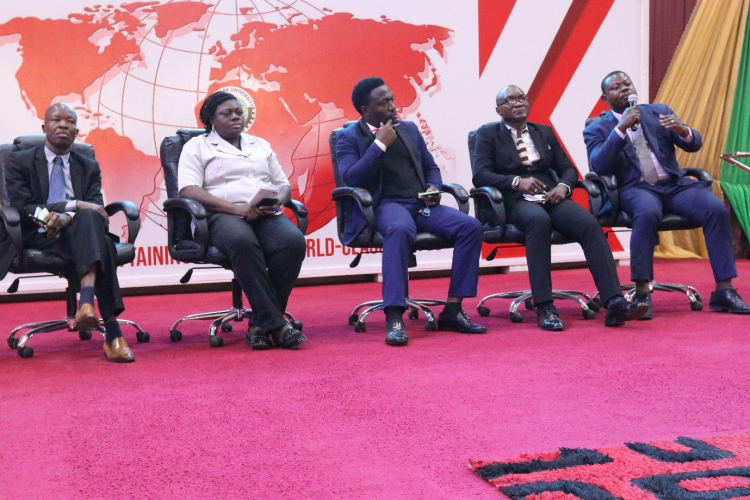
L-R Dr Kolawole [Agricultural Science]; Dr Marion Adebiyi [Computer Science]; Dr Adekunle Adeleke [Mechanical Engineering]; Dr Bamidele Rasak [Sociolo
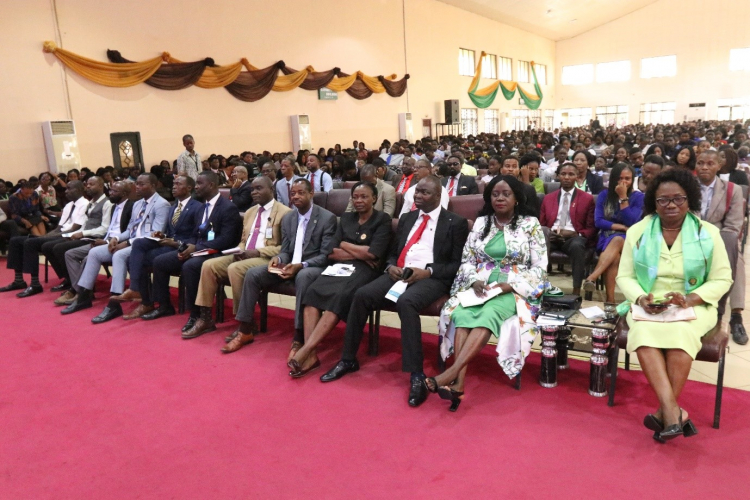
The Ag. Vice-Chancellor, members of management, faculty, staff and students during the parley commemorating the 11th Founder�s Day
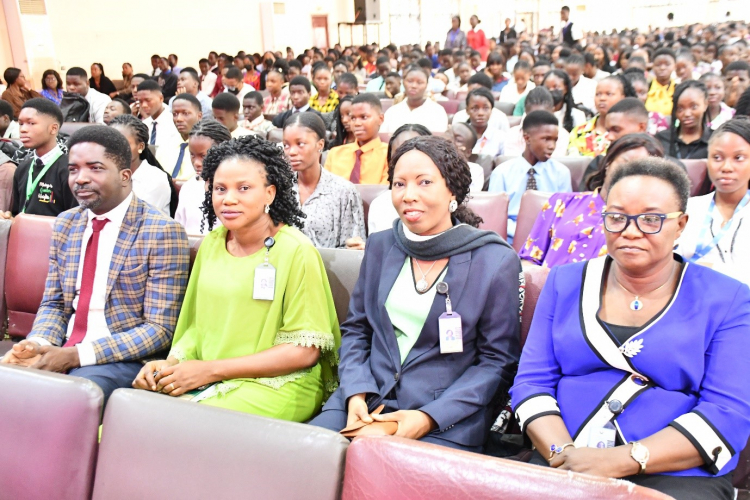
A cross-section of faculty and students during the parley commemorating the 11th Founder�s Day
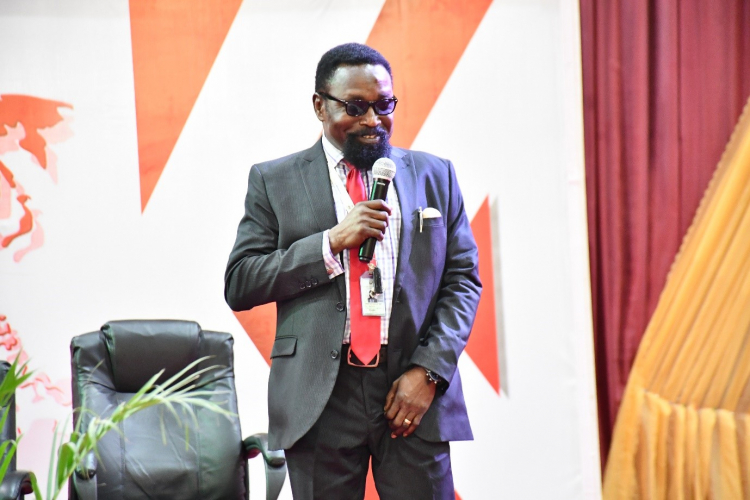
Professor Tony Nwanji of the Accounting and Finance Department contributing during the parley at the 11th Founder�s Day
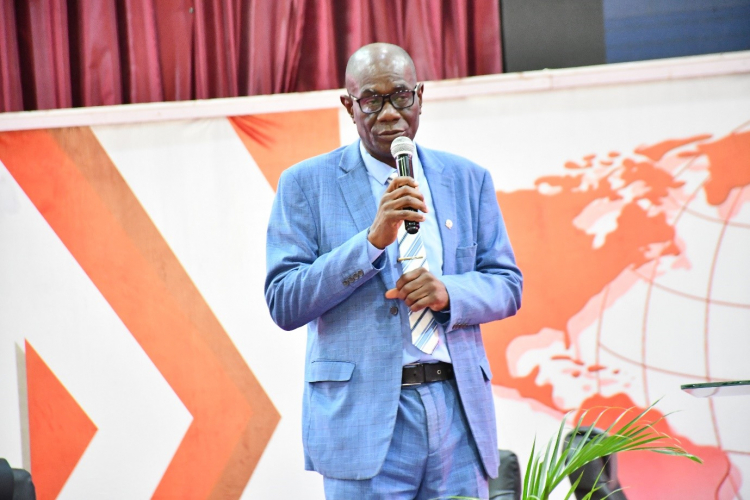
Dr Abiodun Okunola of the Agricultural and Biosystems Engineering Department contributing during the parley at the 11th Founder�s Day
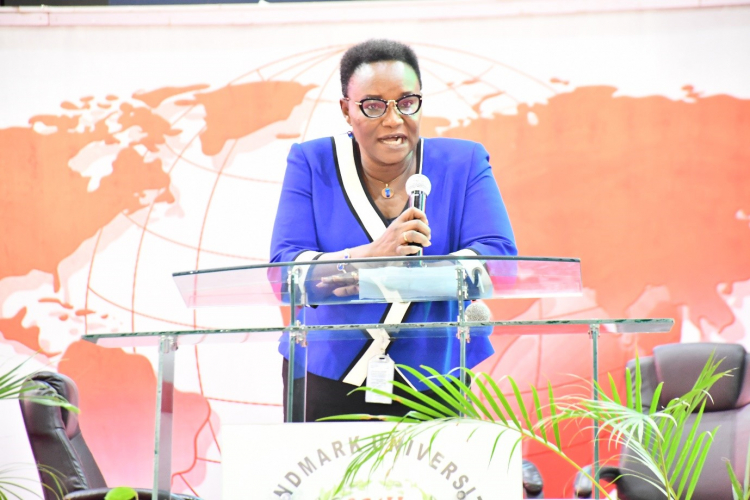
The HOD of Political Science/International Relations/Mass Communication, Dr Modupe Ake giving the vote of thanks at the parley commemorating the 11th
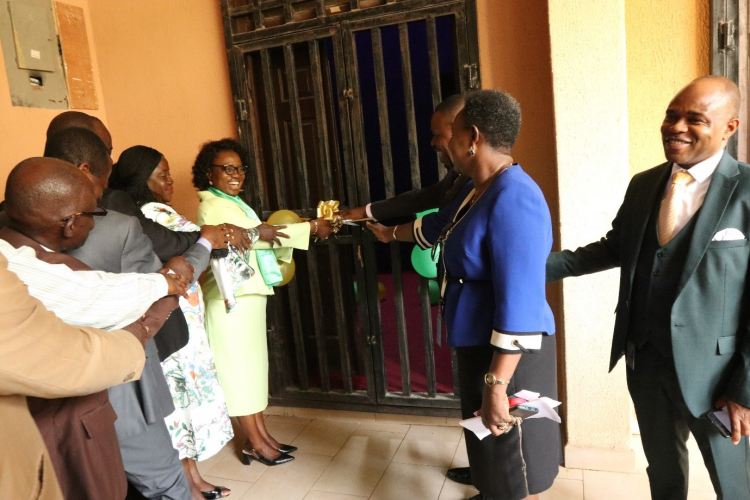
The Ag. Vice-Chancellor and other members of management dedicating the Radio/Television Broadcast Studio for Mass Communication Programme at the 11th
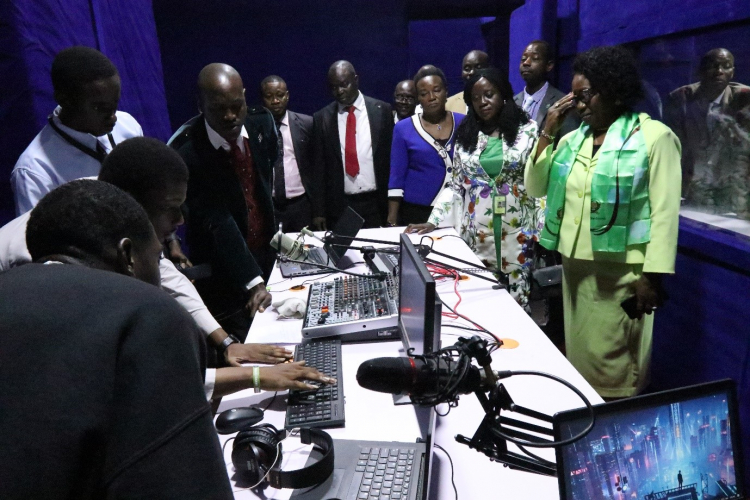
Members of management in the Radio section of the studio during the dedication of the Radio/TV Broadcast Studio at the 11th Founder�s Day
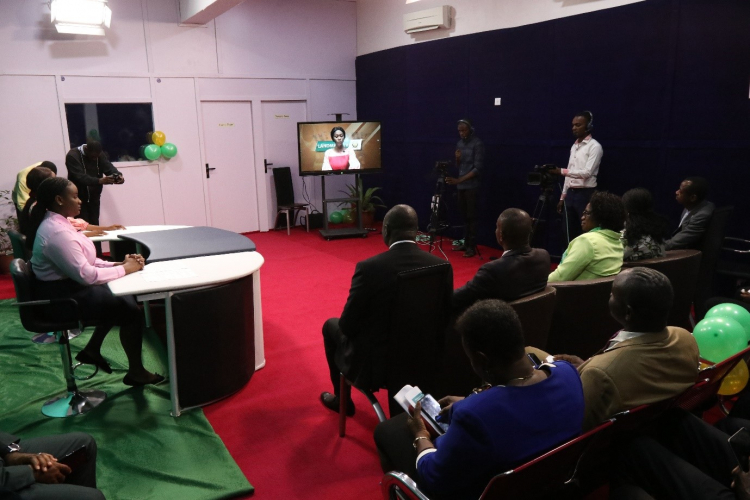
Students of Mass Communication broadcasting news of events in their studio as members of management watched during the dedication of the studio at the
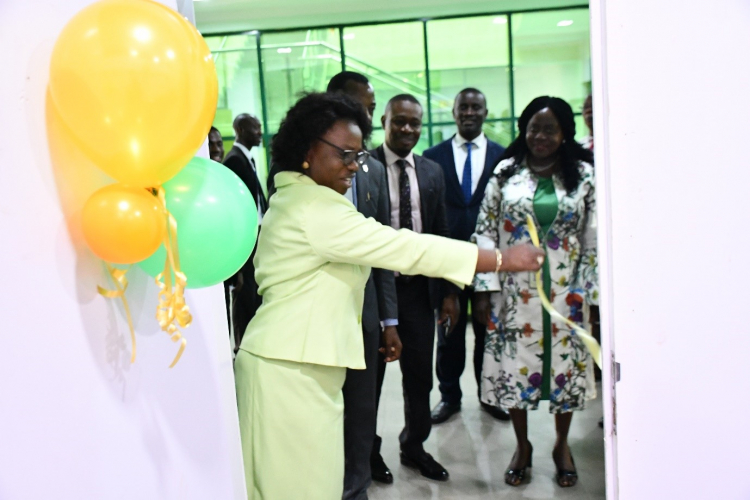
The Ag. Vice-Chancellor and other members of management dedicating the Photo Studio for Mass Communication Programme at the 11th Founder�s Day
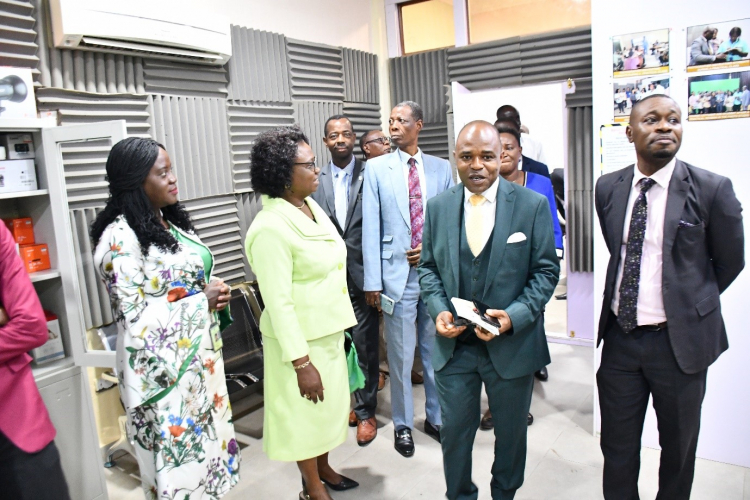
Members of management in the Photo studio during the dedication at the 11th Founder�s Day
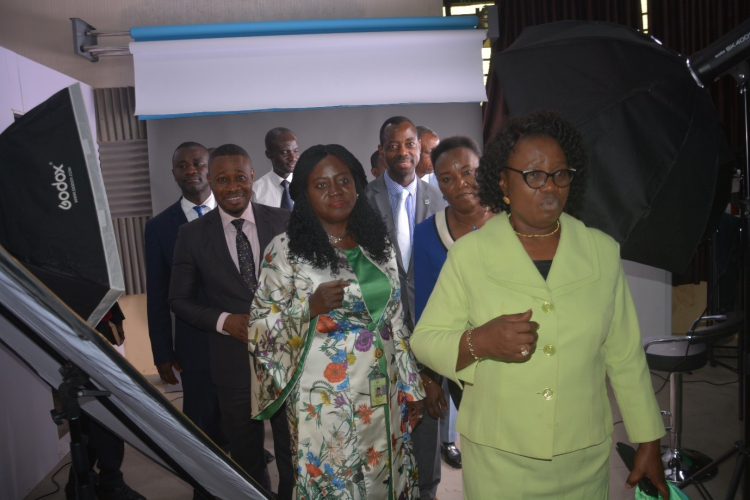
Members of management in the Photo studio during the dedication at the 11th Founder�s Day
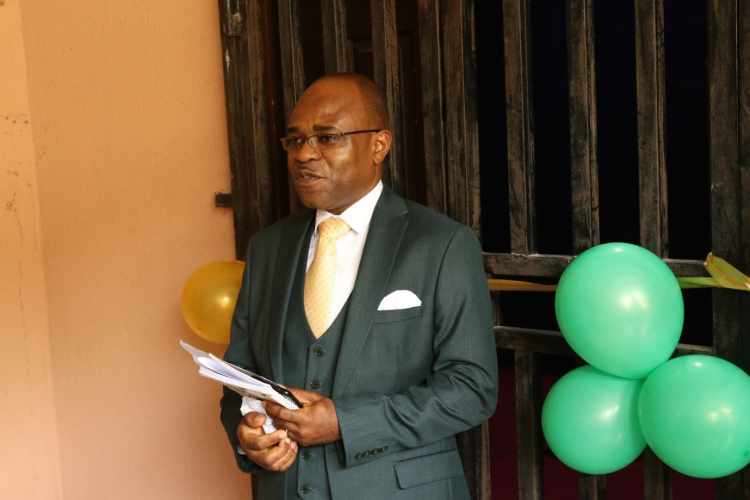
Head of Programme, Mass Communication, Dr Ibiwoye appreciating management for their efforts towards the provision of the facilities during their dedic
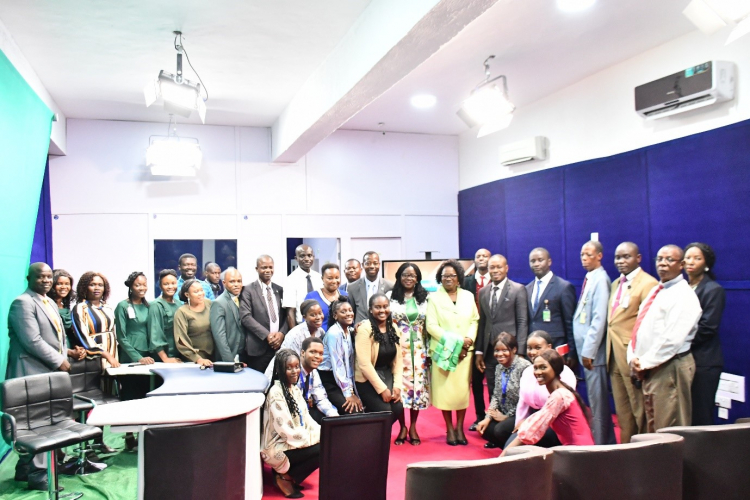
Members of management, faculty, staff and students of the Mass Communication in a group photograph during the dedication of the Radio/TV broadcast stu
 broken clouds 21.06oC
broken clouds 21.06oCGet the latest news and updates by signing up to our daily newsletter.

Story of the week